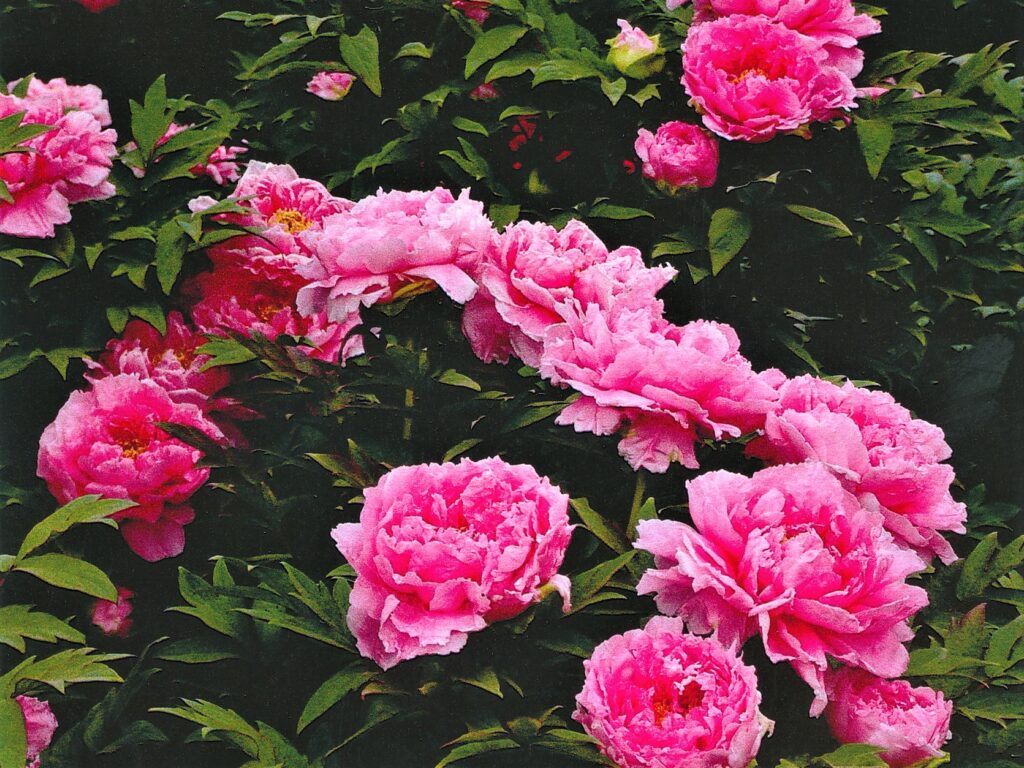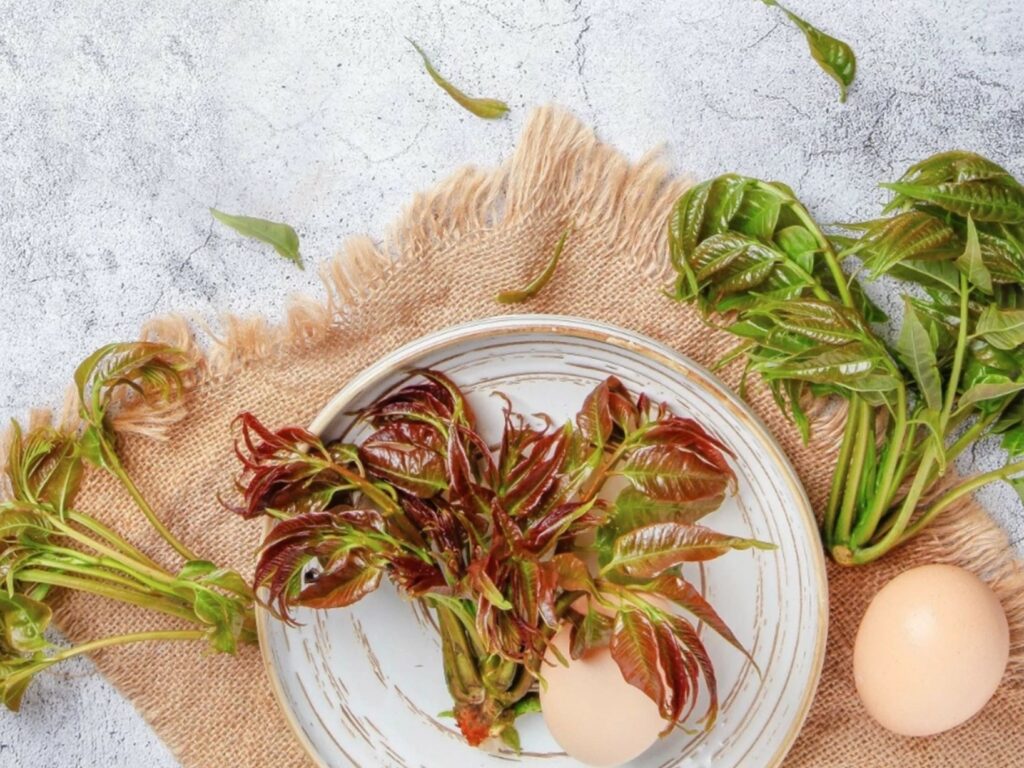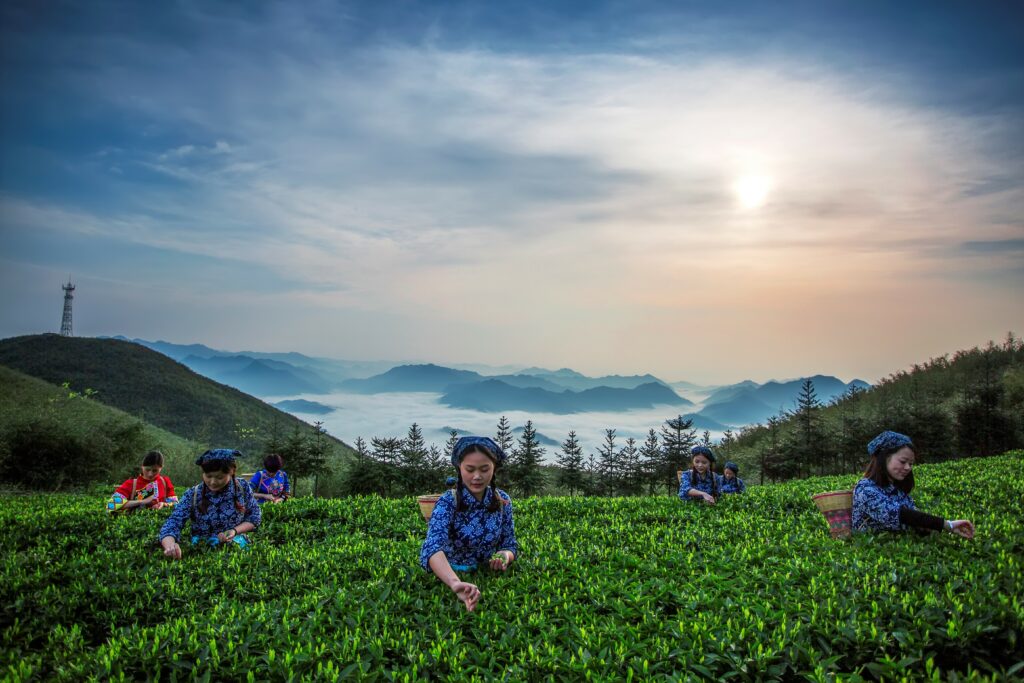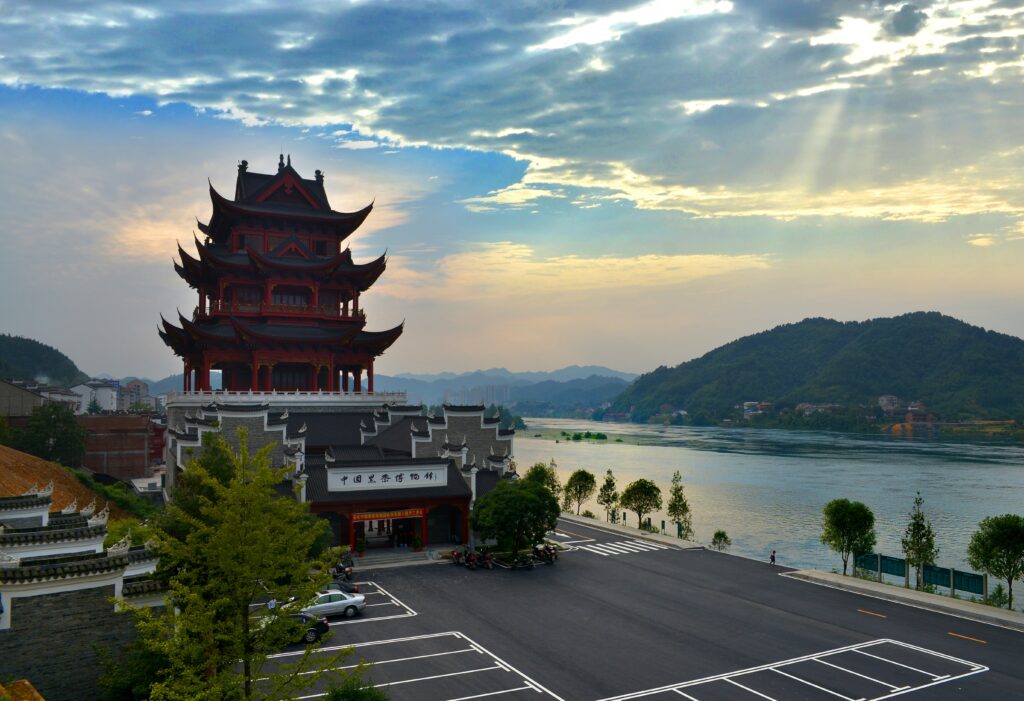
April 20 (the ninth of the third Chinese lunar moth) marks the sixth solar term and the last one of spring this year – Guyu (Grain Rain). As the old saying goes, “Rain brings up the growth of hundreds of grains,” which shows that this period of rainfall is extremely important for the growth of crops. Guyu signals the end of spring and the blooming season of peony, hence the nickname “Flower of Guyu”.

Peony blossoms in Luoyang, Henan province
People in northern China have the tradition to eat toona sinensis during Guyu. The nutritious vegetable can strengthen the immune system, invigorate stomach, moisturize skin and has other anti-inflammatory effects.

Toona sinensis
The custom of picking tea leaves during Guyu is preserved in southern China. Formerly known as Meishan, Anhua county of Yiyang, Hunan province is a world-famous tea town and an important stop on the Tea Road. For thousands of years, tea is the local people’s life and livelihood. Unique weather and soil is vital to the production of a variety of high-quality tea, including green tea, black tea and dark tea, among which dark tea has made a name for itself with Qianliang tea, Fuzhuan tea and other varieties being sold worldwide. Tea growers value Guyu tea highly – tea leaves picked, processed and tasted on the first day of Guyu solar term. As tea trees awake from winter dormancy, they begin to stretch out in spring with moderate temperature and abundant rainfall. Spring tea during Guyu is rich in vitamins and amino acids with fresh and pleasant aroma, which can help to remove heat from the body and is good for the eyes. Considering the high quality and low production of Guyu tea, only tea growers and their guests can normally have the chance to taste it while enjoying the last of spring.

Tea-picking girls at Yuntaishan Scenic Area, Anhua / Wang Jinwei

Amber-colored dark tea / Liu Xingyi
On the first day of the last solar term in spring, people in Anhua county, Yiyang, Hunan province, one of the major stops along the Tea Horse Road, are picking tea leaves to make tea for the most welcomed guests and to embrace the arrival of Guyu solar term.
Video provided by China Xinhua News Network Corporation
茶马古道-永锡桥调-1024x681.jpg)
Yongxi Bridge on the Ancient Tea Horse Road, Yiyang, Hunan province

China Dark Tea Museum / Li Liangbing
Sources:
http://www.ihchina.cn/
中国文化网
河南省文化和旅游厅
湖南省文化和旅游厅
Facebook: China Cultural Center in Stockholm
https://www.facebook.com/China-Cultural-Center-in-Stockholm-110983273921638
Instagram: chinaculturalcenterinstockholm
https://www.instagram.com/chinaculturalcenterinstockholm/
Tik Tok: cccinstockholm
@cccinstockholm

